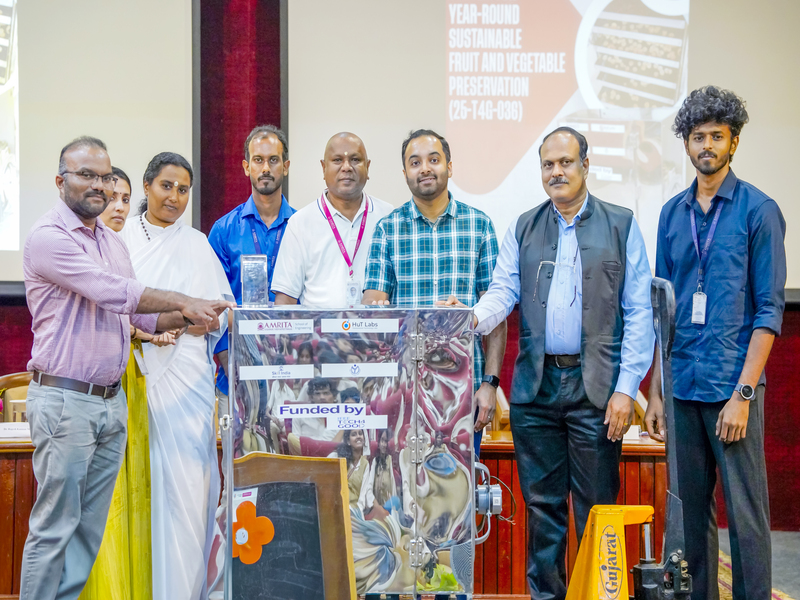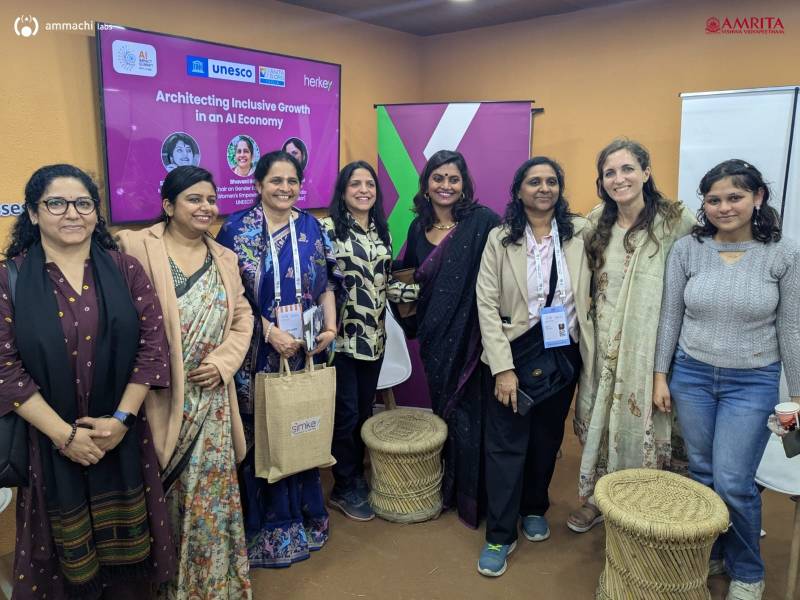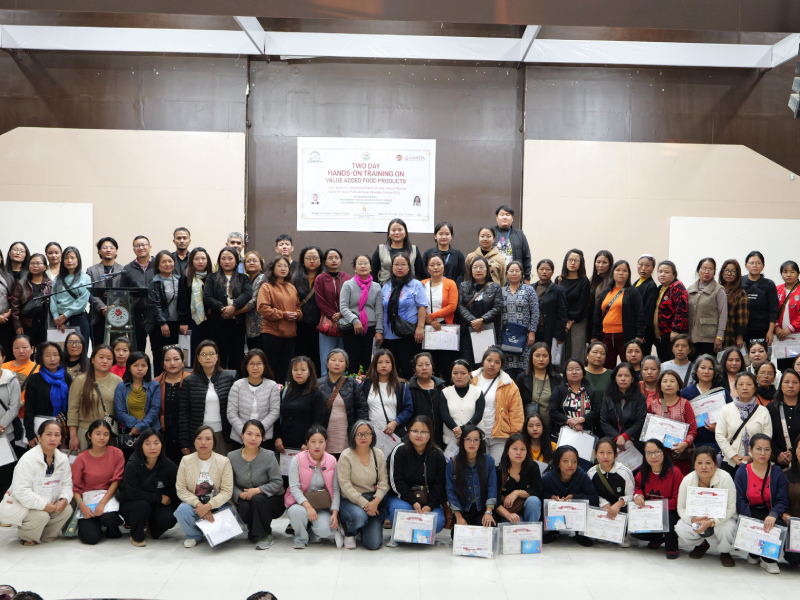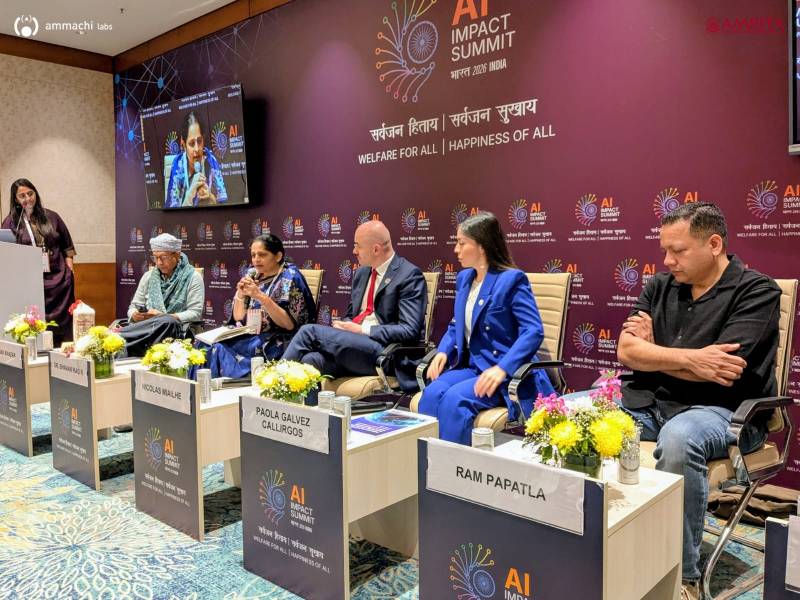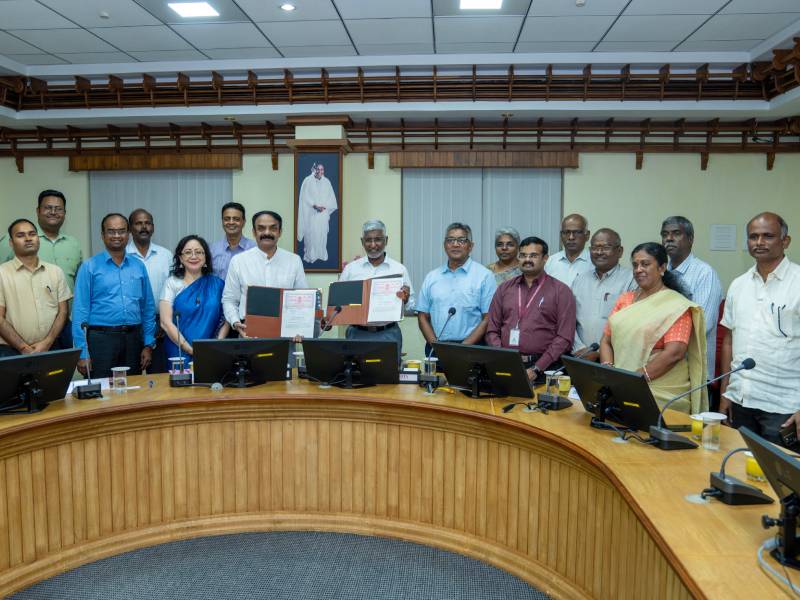February 20, 2011
School of Engineering, Coimbatore
Top level professionals from various areas of the energy industry convened with professors, students, and entrepreneurs at the Anokha Nivritti Conference Feb. 10, to discuss new ideas promoting sustainability and energy renewal resources.
 The conference, which was the first Nivritti convention in South India, allowed members to share thoughts about the nation’s green revolution, and the environmental and economic costs and rewards of renewable energy.
The conference, which was the first Nivritti convention in South India, allowed members to share thoughts about the nation’s green revolution, and the environmental and economic costs and rewards of renewable energy.
The Nivritti project aims to enable sustainability in emerging and developing economies through the dynamic engagement of key stakeholders, including young professionals and universities, by using a methodical, comprehensive approach.
“The inspiration in me is to bridge the gap between the corporate, government, and educational sector. I want to bring them together to come up with productive solutions to what we are facing,” said Mr. Lokesh Dwivedi, business associate of GREEN ADD +, the initiative that sponsors Nivritti.
Mr. Lokesh said that his company is trying to engage the three main stakeholders—corporations, government policy makers, educational institutions—in setting up a green jobs network. He mentioned that the period of 1995 to 2005 was proliferative for information technology, but 2005 onward is the era of green technology and jobs.
Dr. K.K. Sasi, Professor and Vice Chairperson of the Amrita School of Engineering (ASE), Coimbatore, said that a common notion exists in society that everyone knows and understands the concept of green; but this questionable.
 He recalled the 1972 Stockholm Conference, which addressed environmental pollution by fossil fuels, and signaled a turning point in the growth of international environmental politics. Before this, Dr. K contended, there was little concern in looking at industry technology as a negative issue. The conference understood the need to investigate and use alternative energy sources, and that depletion was not the issue, but rather the adverse effects of fossil fuels.
He recalled the 1972 Stockholm Conference, which addressed environmental pollution by fossil fuels, and signaled a turning point in the growth of international environmental politics. Before this, Dr. K contended, there was little concern in looking at industry technology as a negative issue. The conference understood the need to investigate and use alternative energy sources, and that depletion was not the issue, but rather the adverse effects of fossil fuels.
“The thinking in the 1970s and 1980s up to the 21st century was that renewable energy and resources will happen. Only at the turn of the century did we realize that it’s not happening. We did not make a deliberate effort; that is why we are facing a crisis today,” said Dr. K.
Mr. Shardul Kshirsagar of Thermax Limited, Pune, discussed sustainability from an industry perspective. He presented methods of attaining sustainability socially, environmentally, and economically. First, fossil fuels should be avoided, as the nation currently gets 85 percent of its energy from them. Secondly, the three pillars of energy efficiency—reduce, reuse, recycle—should be continuously embraced by individuals and industry.
Mr. Shardul described the high initial costs of going green, as they are significant industry challenges. Trying out new technology poses a risk. The unavailability of a simplified ecosystem in India, and management in the small and medium enterprise segment are also challenging.
The way to achieve energy efficiency progress in the industry, said Mr. Shardul, is to change the mind-set from “have to” to “want to.” The right mix of “demand pull” and “supply push” is also needed. He believes the government should work to facilitate the creation of market driven initiatives.
 Dr. Prabodh Bajpai, Assistant Professor of Electrical Engineering at the Indian Institute of Technology, West Bengal, spoke about energy and sustainability development. He argued that the task of meeting the needs of the present generation without compromising future generations can only be addressed with renewable energy such as solar (father of renewable energy), wind, biomass, ocean waves, and geo-thermal.
Dr. Prabodh Bajpai, Assistant Professor of Electrical Engineering at the Indian Institute of Technology, West Bengal, spoke about energy and sustainability development. He argued that the task of meeting the needs of the present generation without compromising future generations can only be addressed with renewable energy such as solar (father of renewable energy), wind, biomass, ocean waves, and geo-thermal.
To help reduce India’s carbon footprint, the scholar has conducted research on renewable hybrid energy power plants. His work in this area involves using non-silicon material (silicon is expensive) to develop highly efficient crystalline solar cells.
Dr. M. Aravindakshan, Coordinator of the Amrita Center for Environmental Studies, Coimbatore, shared some of his experience working for more than 40 years in tropical horticulture. A leading expert on organic agriculture and eco-friendly landscaping, Dr. M was given the task of tree planting at the Coimbatore campus.
“I have been here for 12 years. We have planted more than one lakh of trees. It’s no easy task to plant trees. We use recycled toilet and bath water from all buildings. The water coming out of your body nourishes the plants and trees,” said Dr. M.
The horticulturalist indicated that sustainable development concerns physical, biological, cultural, and social arenas. This sort of development should be long-lasting; it should manifest in ways that do not use resources that will negatively affect future generations. Avoiding wasteful habits is essential.
He pointed out citizens’ inefficient use of mango orchards, where they often take more than is necessary, while birds consume only what they need. Also, conventional house and building construction is largely uneconomical.
 In her presentation, “Global Sustainable Development Policies and Practices: Green Buildings,” Sameera Simha T P of Visvesvaraya Technological University showed spectators the appearance and functionality of a green building.
In her presentation, “Global Sustainable Development Policies and Practices: Green Buildings,” Sameera Simha T P of Visvesvaraya Technological University showed spectators the appearance and functionality of a green building.
Since construction is the second largest industry in India after agriculture, eco-friendly work practices in this field would be very rewarding, she asserted. The reasons to employ green construction are many. These include: the use of eco-friendly products such as clay blocks, non-toxic paint, blended cement, zero resistance wire, aluminum fabrication (less wood), and less concrete.
In addition to material efficiency, solar devices for cooking, heating, and lighting, electronic timer switches, and CFL/LED light fittings make structures more energy efficient. Similarly, a building management system including rooftop planting, solar cells, and rainwater harvest, contributes to environmentalism.
During the conference’s afternoon panel discussion with the guest speakers, and Dr. K. and Dr. Nambiar T. N. P., Professor and Chairperson of ASE, Coimbatore, audience questions elicited insightful responses. The following are a few highlights of the discussion.
Many countries around the globe, including India, receive governmental subsidies to use solar energy. As fossil fuels become exhausted, there will be a historical necessity to tap solar energy. The Amrita Vishwa Vidyapeetham syllabus is outdated, preventing students from learning about renewable energy until the sixth semester. This obstacle needs to be overhauled.
Universities can help increase job opportunities for students using renewable energy by providing practical projects and laboratory facilities. Students can use a portion of their summer vacation to take on industry projects. India’s economic attitude needs to change so that domestic manufacturing increases and importing decreases.
See Also
Anokha Workshops Challenge Engineering Students
TEDx Conference Hits Anokha
Eminent Dignitaries Inaugurate Anokha 2011

 The conference, which was the first Nivritti convention in South India, allowed members to share thoughts about the nation’s green revolution, and the environmental and economic costs and rewards of renewable energy.
The conference, which was the first Nivritti convention in South India, allowed members to share thoughts about the nation’s green revolution, and the environmental and economic costs and rewards of renewable energy. He recalled the 1972 Stockholm Conference, which addressed environmental pollution by fossil fuels, and signaled a turning point in the growth of international environmental politics. Before this, Dr. K contended, there was little concern in looking at industry technology as a negative issue. The conference understood the need to investigate and use alternative energy sources, and that depletion was not the issue, but rather the adverse effects of fossil fuels.
He recalled the 1972 Stockholm Conference, which addressed environmental pollution by fossil fuels, and signaled a turning point in the growth of international environmental politics. Before this, Dr. K contended, there was little concern in looking at industry technology as a negative issue. The conference understood the need to investigate and use alternative energy sources, and that depletion was not the issue, but rather the adverse effects of fossil fuels. Dr. Prabodh Bajpai, Assistant Professor of Electrical Engineering at the Indian Institute of Technology, West Bengal, spoke about energy and sustainability development. He argued that the task of meeting the needs of the present generation without compromising future generations can only be addressed with renewable energy such as solar (father of renewable energy), wind, biomass, ocean waves, and geo-thermal.
Dr. Prabodh Bajpai, Assistant Professor of Electrical Engineering at the Indian Institute of Technology, West Bengal, spoke about energy and sustainability development. He argued that the task of meeting the needs of the present generation without compromising future generations can only be addressed with renewable energy such as solar (father of renewable energy), wind, biomass, ocean waves, and geo-thermal. In her presentation, “Global Sustainable Development Policies and Practices: Green Buildings,” Sameera Simha T P of Visvesvaraya Technological University showed spectators the appearance and functionality of a green building.
In her presentation, “Global Sustainable Development Policies and Practices: Green Buildings,” Sameera Simha T P of Visvesvaraya Technological University showed spectators the appearance and functionality of a green building.